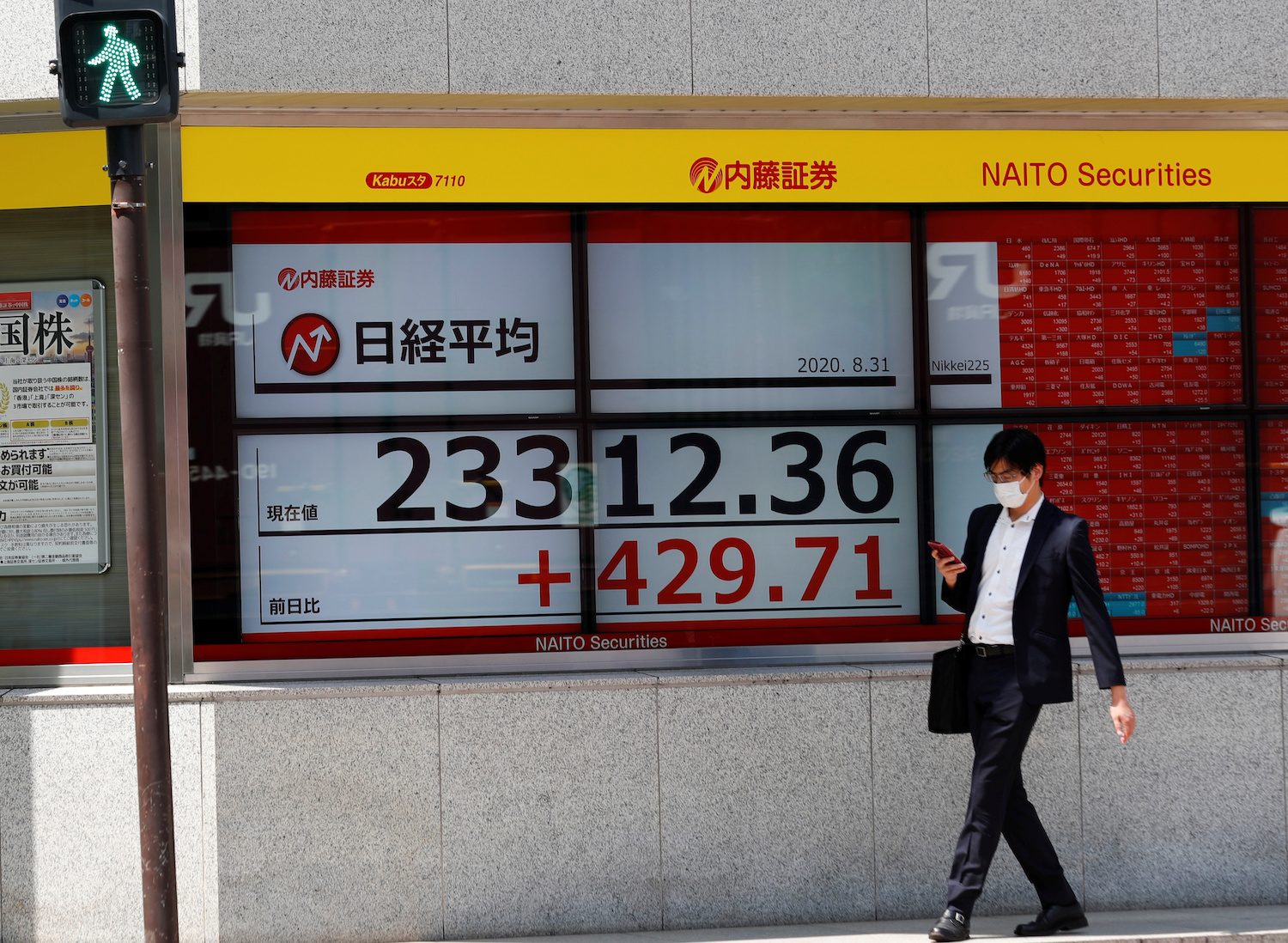(ATF) Hong Kong: Risk assets are getting a lift from China’s strong manufacturing data after downbeat Japanese data and a cool Australian central bank dampened the mood initially. Australian stocks under-performed after the central bank’s silence on additional stimulus and the US dollar fell to a 2 year low boosting oil and gold.
Gold prices jumped 1.2% to $1,990 per ounce after the US dollar tumbled to 91.87 against a basket of currencies. Oil prices also climbed on the back of the greenback’s weakness – West Texas Intermediate crude rose 0.7% and Brent crude climbed 0.5%.
“The dollar’s inability to experience its normal August rally this year, especially after having already reached massively oversold levels, suggests that the bearish forces pushing the dollar lower are particularly strong,” BCA Research analysts said in a note.
“For now, the short-term outlook for the dollar is likely to be one of consolidation before a new wave of selling takes hold.”
RBA expects a bumpy road
Meanwhile, the Reserve Bank of Australia kept interest rates unchanged, as expected, but did not indicate that additional stimulus is forthcoming as many had expected and also acknowledged that the further tightening of restrictions in Victoria meant that the road to recovery will be both “uneven and bumpy”.
The Morrison government later announced that its Jobseeker assistance would be scaled down from A$1,500 a fortnight to A$1,200 at the end of September, then to $1,000 from January.
Australia’s S&P ASX 200 benchmark fell 1.77% and the Australian dollar struck a two-year high, dealing a blow to exporters, who comprise nearly a quarter of the country’s GDP.
China’s CSI benchmark climbed 0.54%, and both Hong Kong’s Hang Seng benchmark and Japan’s Nikkei index ended flat after falling to lows earlier in the day.
China’s Caixin and IHS Markit survey showed sustained recovery as the world’s second largest economy reported a new order increase for the first time this year, boding well for the labour market.
“This indicates that after a period of drought caused by the coronavirus lockdown, foreign demand is starting to pick up as economies across the globe reawaken from their lockdown slumber,” Fiona Cincotta, Market Analyst at data provider City Index, said.
“The employment gauge in the report showed that some companies were starting to increase recruitment to meet production needs, although the gauge remains in negative territory.”
Markets were also weighed under by Japan’s unemployment rate which edged higher in July. The labour force rose 0.23% in July, while employment rose 0.17% m/m, implying that unemployment rate rose from 2.8% to 2.9% in July.
“We expect the unemployment rate to hit 4% later in the year as the labour force continues to recover faster than employment,” Tom Learmouth, Japan Economist at Capital Economics, said.
Asian credit markets were firm as investors are piling into corporate debt to get additional yield. The Asia IG index is a basis point tighter at 60/61. BOSC’s SBLC and Keepwell supported bonds, Beijing Infra’s 3-year dollar bond and ICBC’s two-tranche deal are in the market.
ATF China Bond 50 Index: ATF indices close mixed; financials post big moves
Also on Asia Times Financial
China Caixin data shows robust manufacturing
China’s biggest banks prepare for a wave of bad loans
Reliance offers India’s growth story to strategic and tactical investors
Foreign Exchange: Fast-rising yuan targeting 6.0 vs falling US dollar
Asia Stocks
# Japan’s Nikkei 225 index was flat
# Australia’s S&P ASX 200 tumbled 1.77%
# Hong Kong’s Hang Seng index was nearly unchanged
# China’s CSI300 added 0.54%
# The MSCI Asia Pacific index fell 0.32%.
Stock of the day
Electric vehicle maker BYD Co Ltd rose as much as 14% after Daiwa upgraded it to Buy from Hold, raising its target price to $94 from $69.
























